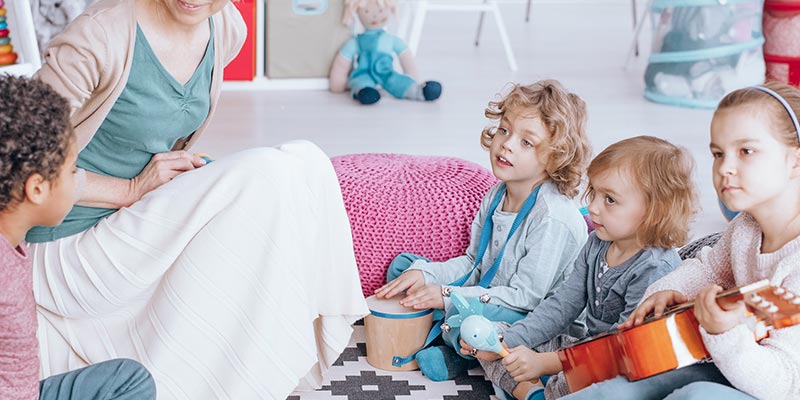Do Music and Reading Go Hand in Hand?


When you see the above letters, doesn't your mind automatically recite it in a tune? Maybe you even repeated HIJK-LMNOP because it fits the rhyming scheme of the song. Whether you are a toddler or an adult, the first song you ever learned was the "ABCD Song." Inculcating music at a young age with education has shown some great outcomes listed below.
- Phonics and Phonemic Awareness: Phonics is a method for teaching reading and writing of an alphabetic language. It involves relating words and letters to certain sounds to help in reading and speaking the language. This is done very easily through music. For example, the "A for Apple, B for Ball …" song. Through this song, a child is learning the pronunciation of a word, the usage of the letter "A" and the placement of letters. And let's face it, the song is a lot of fun to jam along to. Various studies have proven that the children who pick up phonics tend to be able to pick up words much faster. It helps them identify similar letters and they are able to predict the rest of the word. The vast majority of children first learn to read by decoding sound.
- Alliteration and Rhyming: In music, rhyming and alliteration are elements that are seen very often. Though a child might not know that they are learning rhymes, subconsciously, every child's writing inculcates these elements, improving their writing skills drastically. Studies have shown that when a child hears a song, they tend to predict the upcoming words as they are able to figure out the rhyming scheme, which subsequently also improves their pronunciation.
- Fluency: Increased repetition of a phrase or word is what improves fluency. Music makes this repetition much more enjoyable thus improving the fluency of a child learning early reading using music. Singing helps reduce stutter and stammer as well. Another very important feature of music in education is that it teaches the child how to pace their speaking. They learn whether they need to go faster or slower to match the pace of the song making them capable of doing the same during their day to day conversations.
- Vocabulary and Comprehension: When incorporated the right way, music provides a higher level of vocabulary to children at a very young age. Unknowingly, children are reciting and chiming to a rhythmic tune with words they would hear much later in the future if not for the song. Studies have shown that it is much easier to improve vocabulary and its understanding when lessons are incorporated with music.
- Improved Memory: At a young age, a child's memory is quite fresh. While they grasp quickly, they also forget very quickly. Information retention is something most educators struggle with. Various studies show that when something is conveyed to them via music they are able to grasp the information and retain it for much longer than any other method of learning. It has been scientifically proven that music not only helps retain information in memories of childhood, but it helps with patients having Alzheimer's and dementia as well.
- Making Education Fun: At an age where children are so easily distracted and lose their attention so quickly, it is quite a task for an educator to make learning fun. This is when music saves the day. No child will ever say no to an enjoyable singing session with their peers and teachers. This makes teaching as well as learning a lot of fun. It doesn't matter if you are a poor singer. As long as you are having fun, you will have the child's attention.
Children are the most impressionable when they are toddlers. As they grow older it is harder to mold them, which is why it is most important to get the job right in the initial stages. Music has been found to contribute to the acquisition of linguistic skills in the areas of reading, writing, listening, and speaking. It is a proven fact that children at a young age respond positively to music. Inculcating music in the initial phases of their education will help them build a solid foundation in all aspects of early learning and bring them up to be responsible and path-breaking adults of the future.
▁▁▁▁▁▁▁

